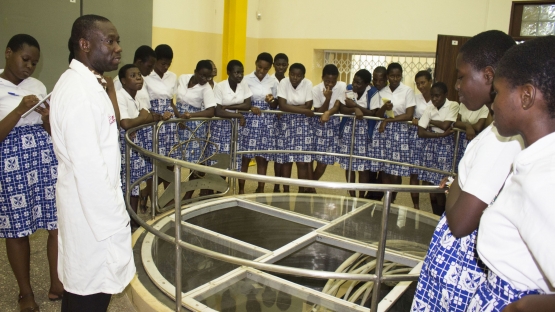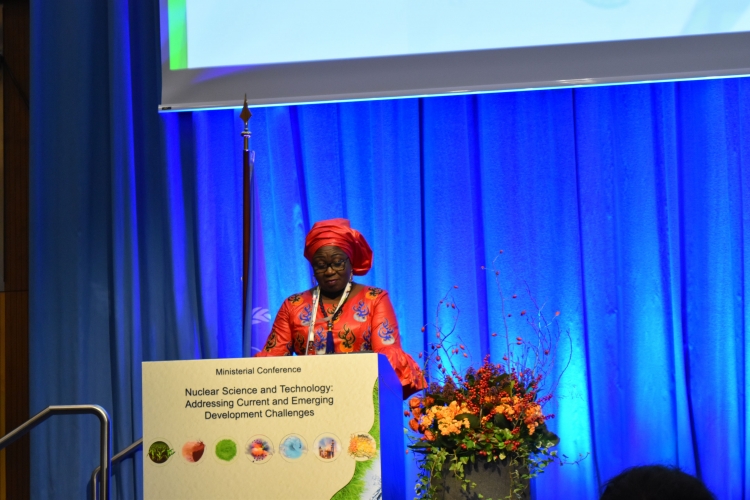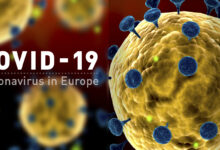
Theme: STEM
Failure to address inequality in science, technology, engineering and mathematics (STEM) education prevents brilliant girls and women from pursuing careers in these fields and is a lost opportunity for society as a whole.
This was the powerful message delivered by Ghana’s Deputy Minister for Science and Technology, Patricia Appiagyei, at the panel ‘Nuclear Science and Technology Applications: Sustaining, Enabling and Empowering’ during the IAEA Ministerial Conference on Nuclear Science and Technology in 2018.
The Honorable Patricia Appiagyei, Deputy Minister for Science and Technology, Ghana, addresses the IAEA Ministerial Conference. (Photo: S. Frimpong/IAEA)
Despite the tremendous progress towards increasing women’s participation in higher education, Ms Appiagyei said, there still exists a persistent, significant gender gap at all levels of STEM education in Ghana and much of the developing world. As a result, women are still underrepresented in these fields. In Ghana, Ms Appiagyei explained, the total enrolment of girls in science education at senior secondary school from 2013 to 2015 was 44 963, as compared to 118 645 for boys.
Ghana is working actively to promote female participation in science and technology education, research and innovations, including working with the IAEA to redress imbalance at the professional level in the nuclear field. The IAEA, through its technical cooperation (TC) programme, supports women scientists from Ghana and other partner countries with PhD fellowships, and with tools and equipment for scientific research in nuclear fields. Member States are strongly encouraged to nominate women to participate in TC projects and in all IAEA training programmes, with the goal of stimulating the interest of women scientists, building capacity and supporting greater female representation at the highest career levels. In the case of Ghana, the number of women benefitting as fellows, scientific visitors and participants in nuclear science training courses is increasing.
Such initiatives support Ghana’s public policies which address gender inequalities and promote the participation of women in all endeavours, particularly in the area of science and technology. In particular, Ghana’s Science, Technology and Innovation (STI) policy encourages girls to specialize in science, technology, engineering and mathematics at the secondary and tertiary levels of education. The policy also outlines strategies for promoting innovations to women in micro and small-scale enterprises, with the aim of ensuring that women adopt new and appropriate technologies conducive to their fields of operation.
By Sheila Frimpong, iaea.org







